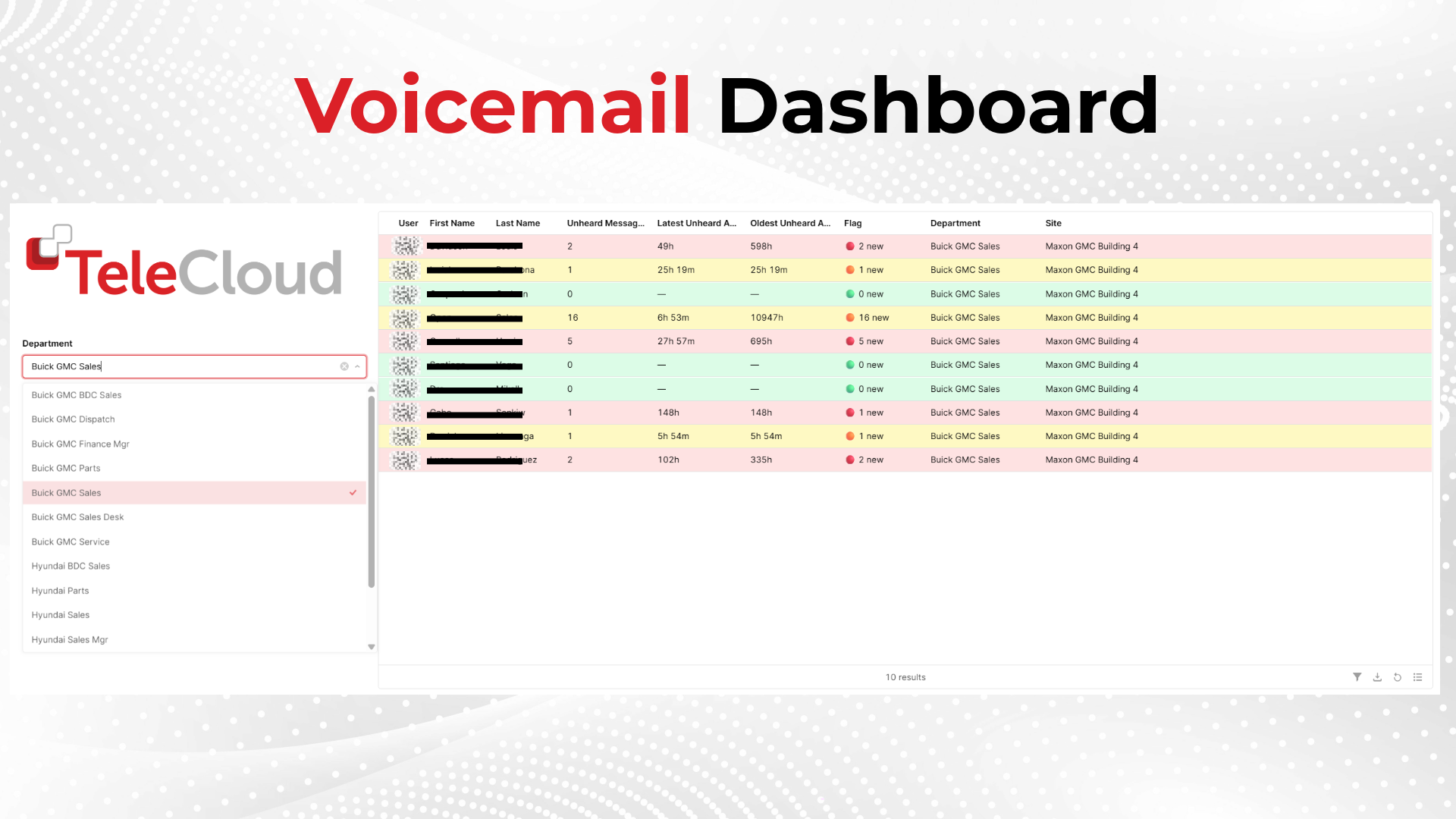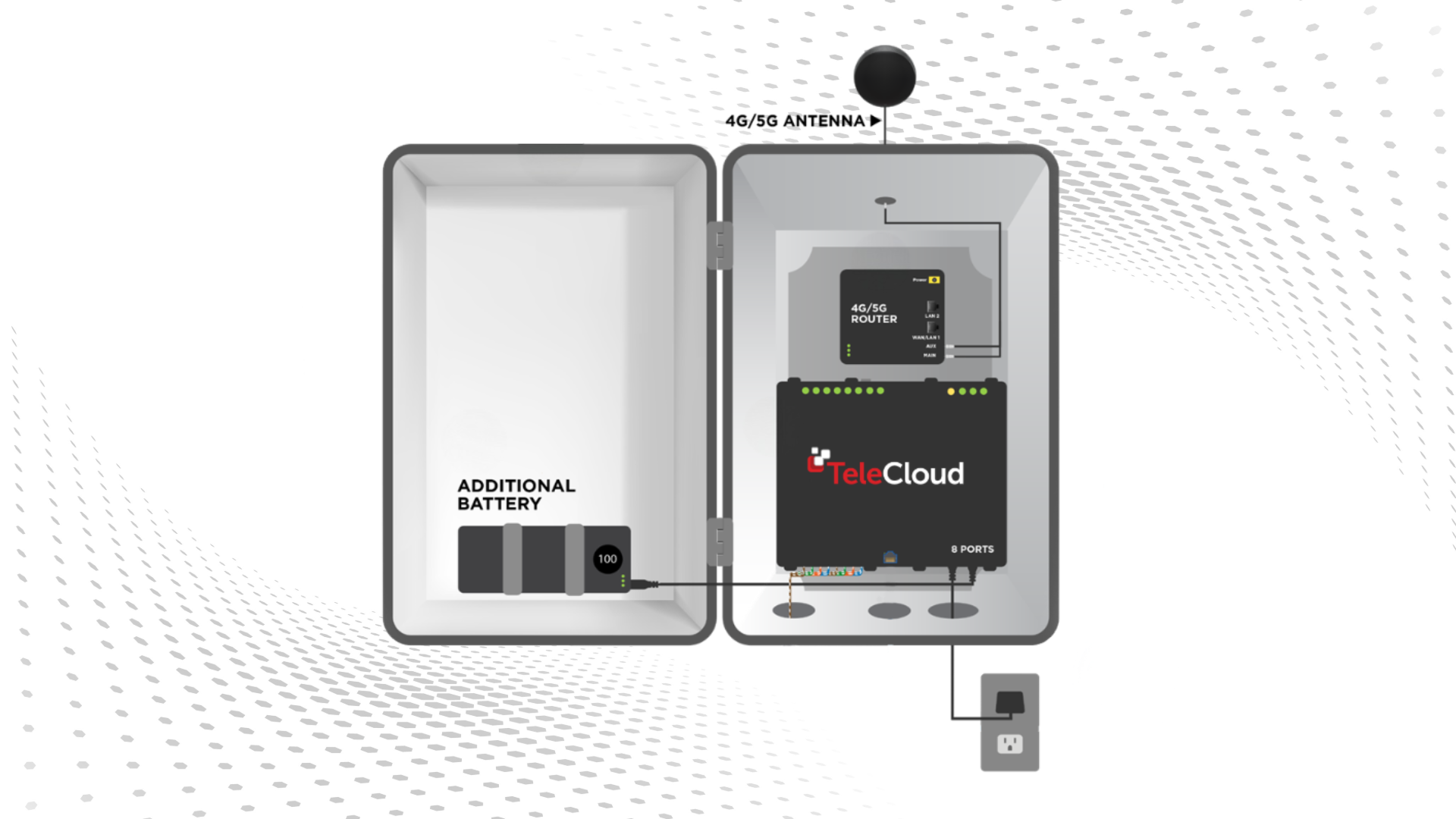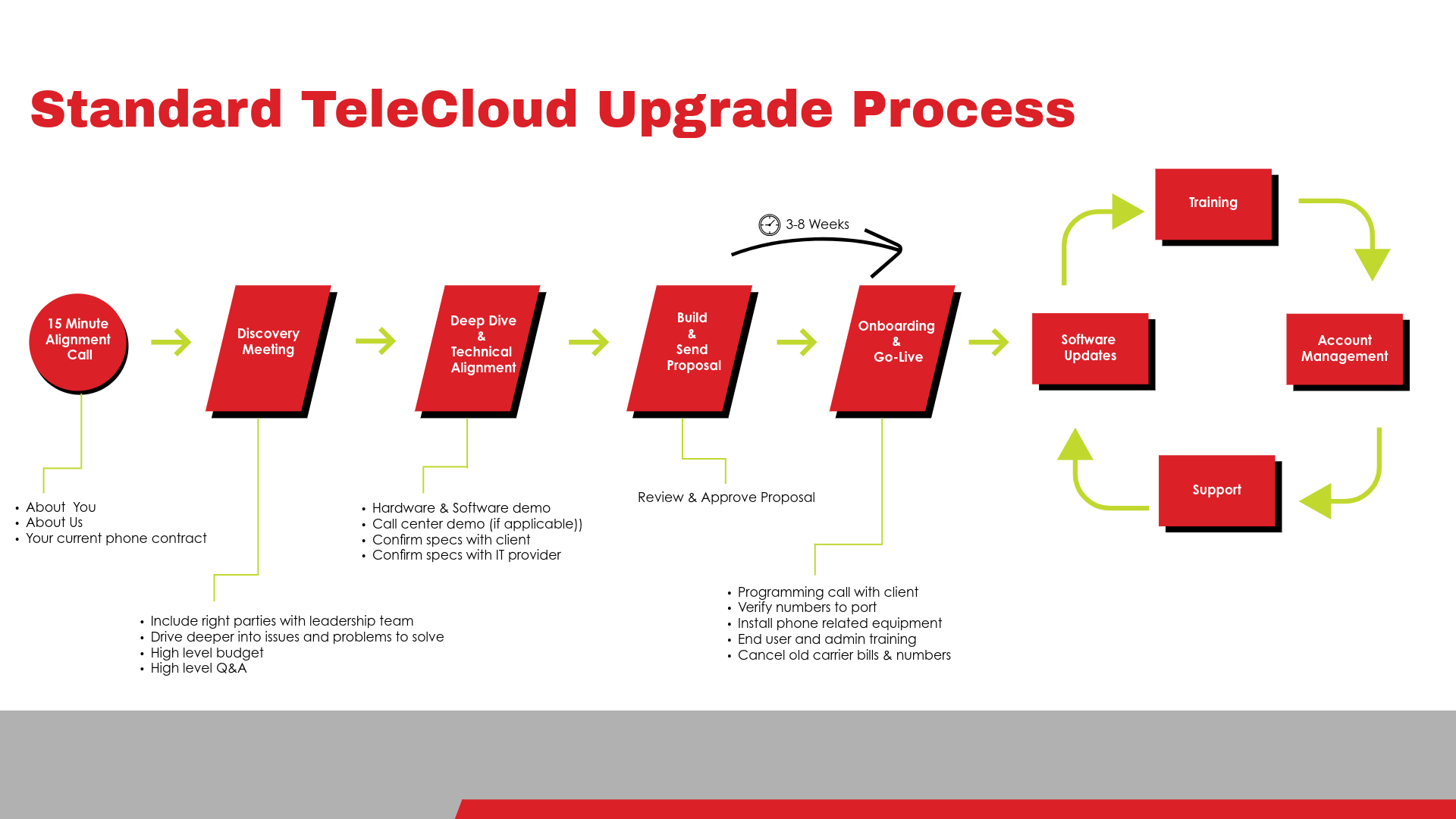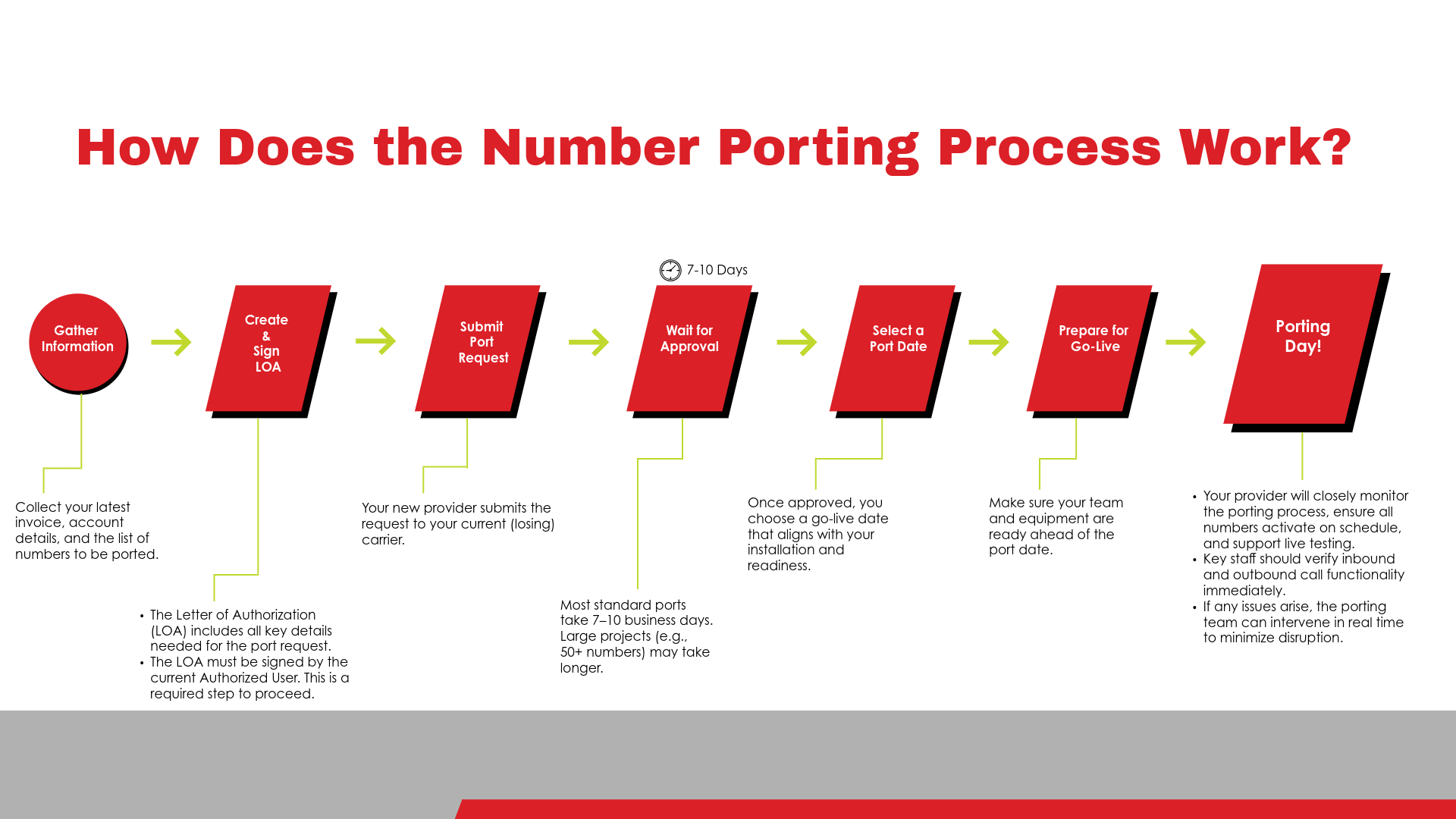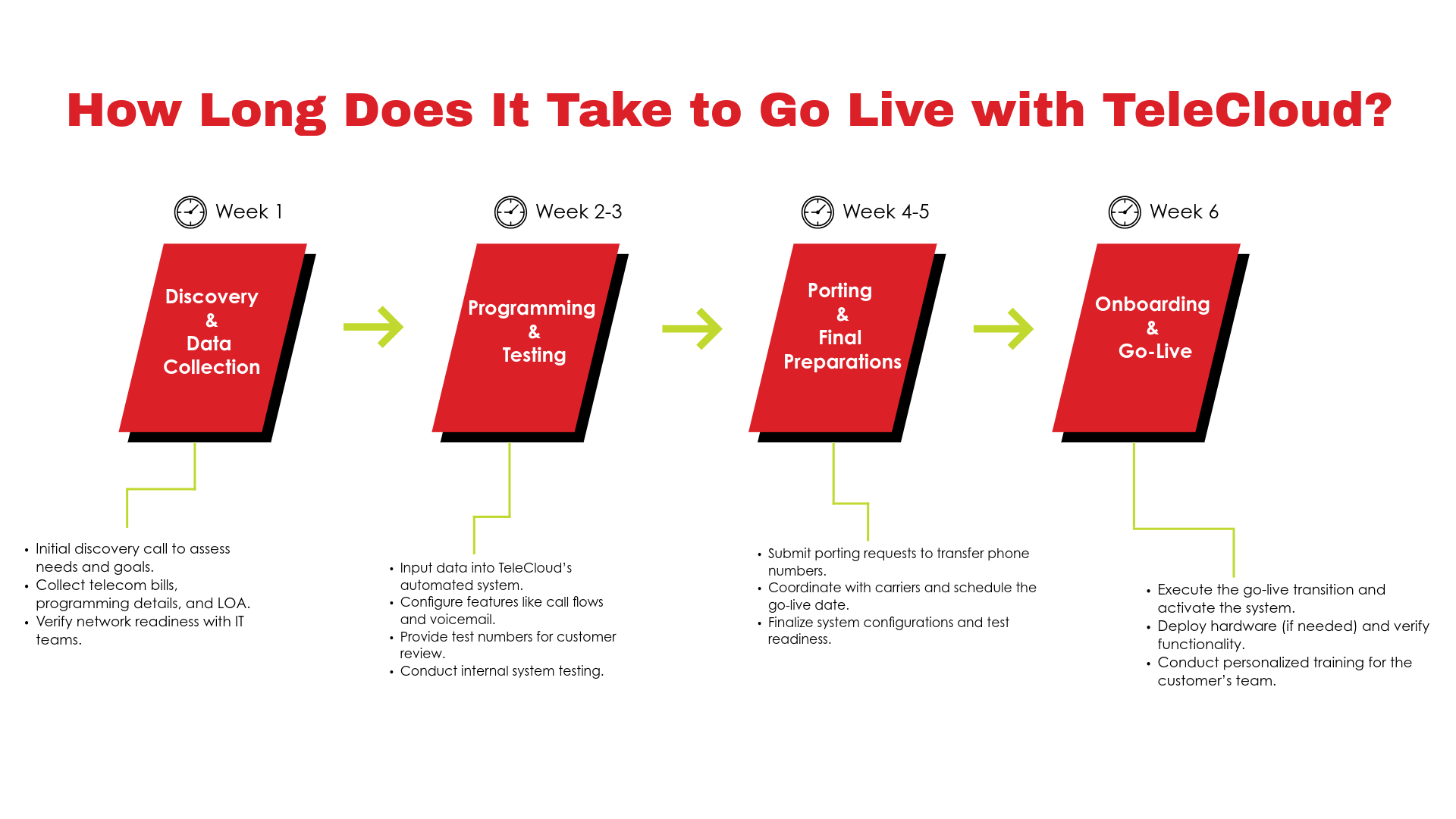What is the difference between on-site VoIP phone systems vs cloud based VoIP phone systems?
July 11th, 2017
5 min read

We cover the the difference between on-site VoIP phone systems vs cloud based VoIP phone systems.
Since the phone industry was invented as a monopoly, it's been one of the most systematized, reliable architectures of all time, in any type of technology. When people think about their phone, they think reliability.
The biggest challenge I face when talking to customers is helping them learn the difference between new VoIP phone systems, which are comprised of either cloud based, or on-site, premise based VoIP phone systems. It’s a challenge for many to conceptualize that your system “lives in the cloud” or still exists in your IT closet like the old phone system, but doesn’t act, look, or behave in the same manner.
So, let’s dive into the subject and help shed some light on the two very different forms of VoIP phone systems.
What is the difference between on-site VoIP phone systems vs cloud based VoIP phone systems?
On-site traditional phone systems are very mature and very reliable. This is also referred to on-premise, since the phone system itself is on your premises, usually in an IT or telecom closet.
While this technology is more mature and reliable, it’s typically more expensive up front. Because of this, you need to look at total cost of ownership, typically over 7 to 10 years.
Additionally, Maintenance and software assurance is above and beyond initial acquisition, both of which are expensive.
The other things to consider are toll lease lines, and local and long distance lines, all of which are also expensive. With traditional phone systems, everything was optional, and nothing was included. For example, a company we were selling to was paying for caller ID on their leased lines, but the phones didn't have the module allowing them to view the caller ID. They needed to pay for both! This blew my mind since caller ID came out in the early 1970’s. This is hardly a new feature
Another issue is there were little to no applications built into the design of a on-site system. Phone systems require ancillary 3rd party tech that has to be integrated, again which can be expensive, cumbersome, and difficult to manage. I’m talking about the basics, things like voicemail, analytics and reports, call recording, and integration to CRM tools. Simply put, the footprint of on-site tech doesn't make sense if you have need for any of these, which most people do!
One of the simplest things to conceptualize it there is no disaster avoidance with traditional premise based systems. This is something we cover in depth in the following articles:
- What happens to my VoIP phone systems during a power outage?
- What happens to the VoIP phone system at my business if the internet goes down?
Since everything is run out of a highly reliable data center, VoIP phone systems are already designed to work in case of an emergency. They’re designed to eliminate a single point of failure, and let your customer’s calls make it though even if your office is without internet or power.
Most small businesses wouldn't buy expensive generators or multiple fiber providers to keep their phone system active, so VoIP is a cost effective way to stay connected with your customers at all times. This ensures if you lose power, your customer won't hear a busy signal.

What about VoIP phone technology?
Simply put, VoIP is like an iPhone and traditional on-premise technology is like an old-school flip phone.
Both are designed to make and receive calls, but the iPhone is designed to do much, much more. Like a smartphone, a VoIP system is software based. This means, just like your smartphone, right off the bat, every month, quarter over quarter, you'll get more capabilities and features automatically because that's how it's designed. Software updates will continue to make your phone more and more powerful, for no additional cost.
There is no more buying 3rd party packages or ancillary hardware. Things like voicemail to email used to be a great selling feature, now it's voicemail to email with a text transcription. Things getter more user friendly as time goes on, and you’re not paying a dime more for the service.
Additionally, with VoIP technology, smartphone apps are ready to go at the push of a button meaning you can take your phone system out of the office. So whether you’re on the job, working at home, or answering calls on the beach in the Carribean, your cellphone acts like your desktop phone in the office.
All this adds up to an added level of flexibility that traditional phone systems can never match. Because VoIP is internet based, it can be deployed anytime, anywhere. With traditional phone systems, you used to have to 3rd party VPNs and software licenses, which again was very difficult and expensive!
What about VoIP phone system costs?
this is a huge benefit when it comes to VoIP phone systems. Typically, it’s a lower upfront cost when compared to premised based technology. Also, there’s options that make it very affordable to businesses of all sizes. There’s less nickle and diming you, since most extra fees and taxes are wrapped up into service plans. Also, you don’t necessarily have to buy the phone system, but could instead lease what you need. Of course depending on your situation, you might have to buy some IP phones & network hardware & cabling, but overall you spend less and buy less.
We cover this a lot in a few additional articles which may be helpful to read:
- How much will it cost my business to migrate to a hosted VoIP phone system?
- How much does a VoIP Phone System Cost a Business?
- How much does a premised based VoIP phone system cost a business?
- What are the hidden costs with a VoIP phone system?
VoIP phone systems have no end of life.
This is not to say that VoIP systems will last FOREVER, but there really, in a sense, is no end of life to your phone system. Traditional phone systems were old and antiquated 5, 10, 15 years down the road, aka, the end of their life.
With VoIP, your plastic, physical desk phone isn’t proprietary or relevant to new applications. All the "smarts" are in the cloud or data center itself. Yes, there is a contractual end date, but you can continue to pay for the service and benefit from cutting edge tech year and features year after year.
the added perk here is there is less change of equipment failure. There are no phone "boxes" in the basement or closet to deal with, and no major server or piece of hardware that you need to maintain or replace.
Think of it like a Netflix vs Blockbuster scenario. While Blockbuster was the 800 pound gorilla, eventually Netflix won. Just like Netflix, eventually cloud based VoIP services will win over the long run. Recently Avaya declared chapter 11, which we covered in an article Why Toshiba Exited VoIP Business Market & What Are Your Options.
While premise based systems are mature, advanced, and incredibly reliable, every month the feature gap between cloud based and premise based systems shrink. Currently, premise based systems are great for business with specific needs, like businesses with call centers, or the need for custom integrations, but things are slowly changing.
So while it depends on what your needs are, for most businesses a cloud based VoIP phone system would be more than enough to fit the bill.
To learn more about VoIP phone systems and the various ways they can help your business, click here to contact us online, or give me a call at (908) 378-1217.

By Damon Finaldi
President, Tele-Data Solutions
E-mail: damon@tele-datasolutions.com | Direct Line: (908) 378-1217
I’m the general manager at Tele-Data Solutions. I love helping my customers and creating the best working environment for my team members to grow and to thrive. I grew up with the telecom business and have seen the evolution of phones—from the analog world to IP—and the huge positive impact it can have on a business.
vin@telecloud.net OR call/text 908-378-1218





